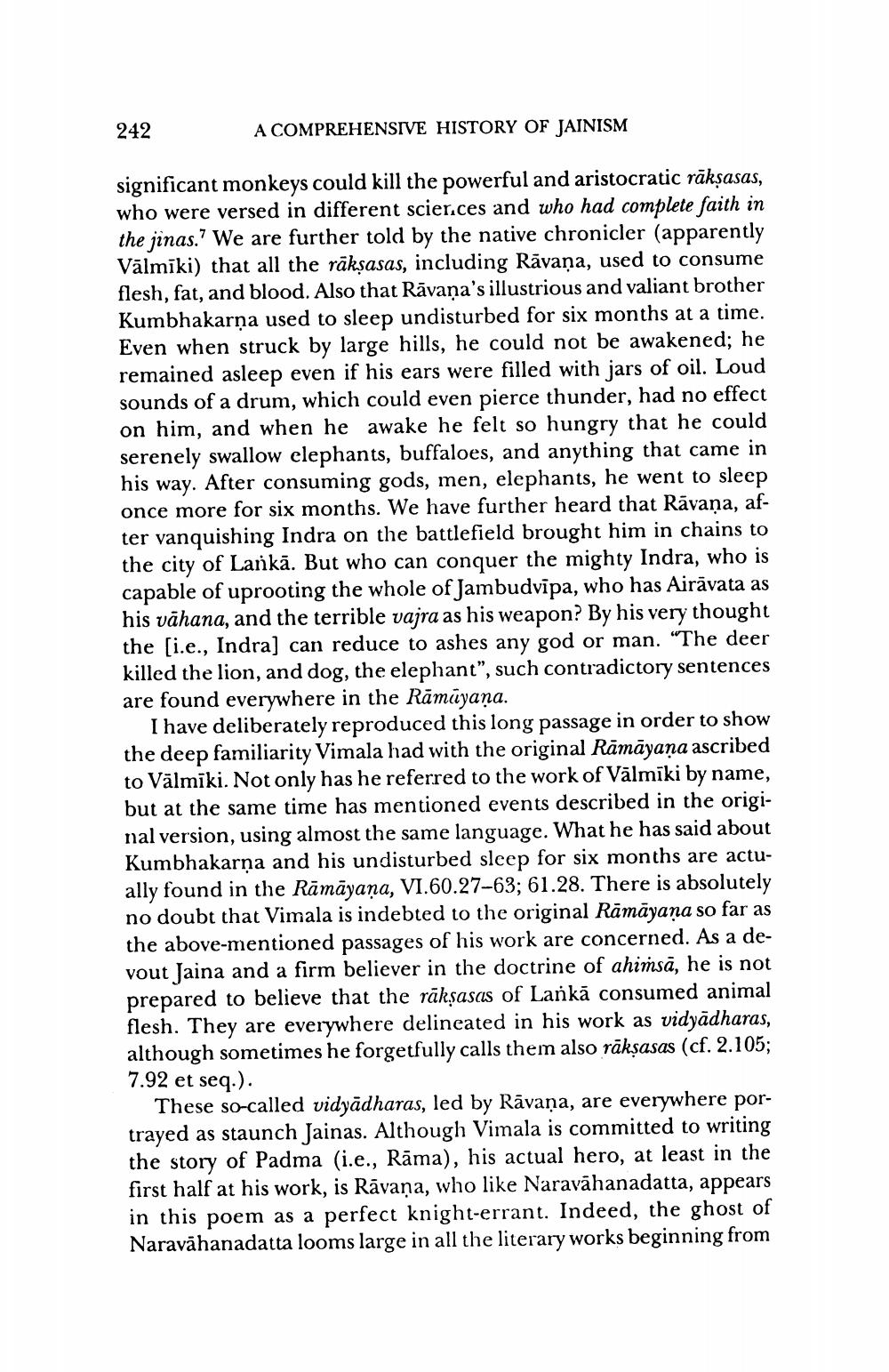________________
242
A COMPREHENSIVE HISTORY OF JAINISM
significant monkeys could kill the powerful and aristocratic rākşasas who were versed in different sciences and who had complete faith in the jinas." We are further told by the native chronicler (apparently Vālmīki) that all the rākṣasas, including Rāvana, used to consume flesh, fat, and blood. Also that Rāvana's illustrious and valiant brother Kumbhakarna used to sleep undisturbed for six months at a time. Even when struck by large hills, he could not be awakened; he remained asleep even if his ears were filled with jars of oil. Loud sounds of a drum, which could even pierce thunder, had no effect on him, and when he awake he felt so hungry that he could serenely swallow elephants, buffaloes, and anything that came in his way. After consuming gods, men, elephants, he went to sleep once more for six months. We have further heard that Rāvana, after vanquishing Indra on the battlefield brought him in chains to the city of Lankā. But who can conquer the mighty Indra, who is capable of uprooting the whole of Jambudvipa, who has Airāvata as his vāhana, and the terrible vajra as his weapon? By his very thought the [i.e., Indra) can reduce to ashes any god or man. "The deer killed the lion, and dog, the elephant”, such contradictory sentences are found everywhere in the Rāmāyana.
I have deliberately reproduced this long passage in order to show the deep familiarity Vimala had with the original Rāmāyana ascribed to Vālmīki. Not only has he referred to the work of Vālmīki by name, but at the same time has mentioned events described in the original version, using almost the same language. What he has said about Kumbhakarņa and his undisturbed sleep for six months are actually found in the Rāmāyana, VI.60.27-63; 61.28. There is absolutely no doubt that Vimala is indebted to the original Rāmāyaṇa so far as the above-mentioned passages of his work are concerned. As a devout Jaina and a firm believer in the doctrine of ahimsā, he is not prepared to believe that the rākşasas of Lankā consumed animal flesh. They are everywhere delineated in his work as vidyadharas, although sometimes he forgetfully calls them also rākşasas (cf. 2.105; 7.92 et seq.).
These so-called vidyādharas, led by Rāvana, are everywhere portrayed as staunch Jainas. Although Vimala is committed to writing the story of Padma (i.e., Rāma), his actual hero, at least in the first half at his work, is Rāvana, who like Naravāhanadatta, appears in this poem as a perfect knight-errant. Indeed, the ghost of Naravāhanadatta looms large in all the literary works beginning from




